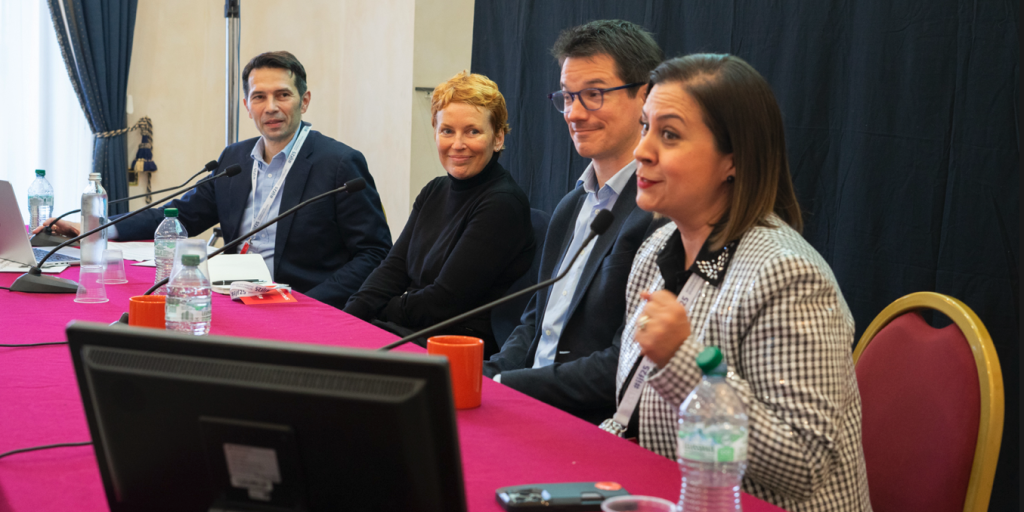From Special Rapporteurs to expert working groups: guide to the UN’s Special Procedures
PICTURE: Bhabin Tamang/Pexels
This is one in a series of IFEX explainers aimed at strengthening the ability of media and civil society to engage in global spaces for free expression advocacy. To visit the hub page and see the whole set, click here
The first thing worth noting is that, while called ‘procedures’, these are, in fact, people. The second thing worth noting is what makes them special. This group of independent experts monitor and report on human rights violations and advise the United Nations on their protection.
What – and who – are the UN Special Procedures?
The system of Special Procedures is a central part of the UN’s human rights machinery. They include independent specialists – often called Special Rapporteurs – and expert working groups, mandated to monitor and report on violations of human rights, and give advice to the UN and their member states on how to protect them.
As of December 2017, there are 44 individual and expert groups’ thematic mandates and 12 country-specific ones, including a Special Rapporteur on the Promotion and Protection of the Right to Freedom of Opinion and Expression.
We’ll refer to them all here as UN mandate holders.
Their role requires them to be independent of the UN. Their recommendations are not UN official statements, but their own views. They do not receive a salary from the UN, although they receive personnel and logistical support from the office of the United Nations High Commissioner on Human Rights in Geneva
UN Mandate-holders are guided by the Manual of the Special Procedures and the Code of Conduct for Special Procedures Mandate-holders.
What do they do?
UN Mandate-holders have a number of tools at their disposal when it comes to monitoring, reporting, and advising on human rights.
• They listen – and request follow-up action
UN Mandate-holders receive communications from various actors – normally civil society groups – on alleged violations of human rights that have already occurred, are ongoing, or which have a high risk of occurring.
The Mandate-holder sends a letter of allegation to the concerned State, and may request follow-up action. In these letters, governments may be asked to take urgent preventive or protection measures.
The decision to intervene generally takes into account the reliability of the source and the credibility of information received, the details provided, as well as whether it falls within the scope of the Mandate-holder.
- Guidelines for submitting communications are available here
- Annual reports summarising communications sent and States’ replies received can be consulted here
• They make official country visits
The purpose of these is to assess the human rights situation at the national and local level. These visits can be made with other UN Mandate-holders and also with regional Mandate-holders.
A request to visit a country should be made to governments and accepted by them. Typically, experts do not undertake more than two official visits a year, partly due to lack of funds allocated to this purpose.
- List of official visits since 1998, including mission reports, a list of upcoming trips as well as standing invitations can be found here
• They make informal visits as well
These tend to follow invitations from academic institutions, NGOs or other groups, to attend a specific event. These trips, although not considered official, can serve as an opportunity to meet with relevant individuals and groups, and sometimes with government representatives.
Often, information gathered during these informal trips can be found in the mandate holders’ annual reports (see below).
• They produce reports
Annual reports are submitted to the Human Rights Council (HRC) and for most of Mandate-holders, another annual report is presented to the UN General Assembly (UNGA). These reports are crucial as they analyse current human rights challenges and trends; in many cases they focus on a specific thematic area.
These reports are furthermore important because they make recommendations to a broad cross-section of actors, such as States, civil society groups and the UN itself.
- Annual reports can be found on each of the special Mandate-holders pages, here
• They raise public awareness by issuing press releases and statements
These are released on a regular basis by the special Mandate-holders.
- Press releases can be found here
Which Mandate-holders are most relevant to the right to freedom of expression?
Most notably, there is the Special Rapporteur on the Promotion and Protection of the Right to Freedom of Opinion and Expression.
‘[This] Special Rapporteur is mandated to gather relevant information and give advice in relation to violations of the right to freedom expression, discrimination against, threats or use of violence, harassment, persecution or intimidation directed at persons seeking to exercise or to promote the exercise of the right to freedom of opinion and expression, including, as a matter of high priority, against journalists or other professionals in the field of information.’
But among the 56 experts and working groups, there are others whose mandates overlap with or support these rights.
For example, the 2012 report from the Special Rapporteur on the Situation of Human Rights Defenders put a special focus on journalists, and the 2012 report from the Special Rapporteur on Extrajudicial, Summary or Arbitrary executions was on protecting the lives of journalists.
The 2018 report by the Special Rapporteur on Violence Against Women, Its Causes and Consequences, is about online harassment against women.
Here is a list of related Mandate-holders:
• Special Rapporteur on the Rights to Freedom of Peaceful Assembly and of Association
• Special Rapporteur on Freedom of Religion or Belief
• Special Rapporteur on the Right to Privacy
• Special Rapporteur on Torture and Other Cruel, Inhuman or Degrading Treatment or Punishment
• Special Rapporteur on the Independence of Judges and Lawyers
• Independent Expert on Protection Against Violence and Discrimination based on Sexual Orientation and Gender Identity
• Special Rapporteur on the Promotion and Protection of Human Rights and Fundamental Freedoms while Countering Terrorism
• Special Rapporteur in the Field of Cultural Rights
• Working Group on Arbitrary Detention
• Working Group on Enforced or Involuntary Disappearances
How can you collaborate with them? 10 tips:
1 Share information with them on a regular basis
2 Submit specific communications and allegations on violations of human rights and follow-up on them. Think about the 5 w’s (who, what, where when, and why) and indicate whether you have victims’ approval for making their name public. You can send information on a case to all Mandate-holders concerned
3 Encourage government to invite Mandate-holders to visit or to accept a standing invitation
4 Provide support to them during country visits; develop plans of action and activities to follow up on the work initiated by a country visit (information on upcoming visits are published on each Mandate-holder’s web page)
5 Contribute to annual and thematic reports issued by Mandate-holders (calls for inputs are announced on each mandate holder’s web page)
6 Help disseminate the work and findings included in their reports; also use them if you engage in other UN processes, such as the Universal Periodic Review, the HRC and others
7 Work with government and other actors to encourage implementation of recommendations; create campaigns to advocate for their realisation
8 Monitor the steps government has taken (or not) to meet recommendations and keep the mandate-holder informed of the State’s progress
9 Attend the annual meeting of special Mandate-holders that takes place in June in Geneva to exchange views with States, human rights treaty bodies, NGOs and other civil society actors and representatives from the UN Secretariat
10 Don’t hesitate to contact them! Contact details can be found on their web pages:
One last thing…
Regional organisations also have Rapporteurs on freedom of expression with similar roles at the regional level.
Check out their websites at the African Commission for Human and People’s Rights, the Inter-American Commission of Human Rights and the Organisation for Security and Co-operation in Europe (OSCE).
All these Rapporteurs deliver annual joint declarations with the UN Mandate-holders on issues of concern involving the right to freedom of expression.
Resources
• Working with the United Nations Human Rights Programme: A Handbook for Civil Society. Chapter IV (2008). OHCHR
• Reporting Human Rights Violations to UN Special Procedures: An Introductory Guide (2011). CIVICUS
• Human Rights Special Procedures: Determinants of Influence (2014). Marc Limon & Ted Piccone. Universal Rights Group. Brookings Institution
• Catalysts for Rights: the Unique Contributions of the UN’s Independent Experts on Human Rights (2010). Ted Piccone. Brookings Institution
• Engaging UN Special Procedures to Advance Human Rights at Home: A Guide of US Advocates (2015). Columbia University
- This article was first published here




